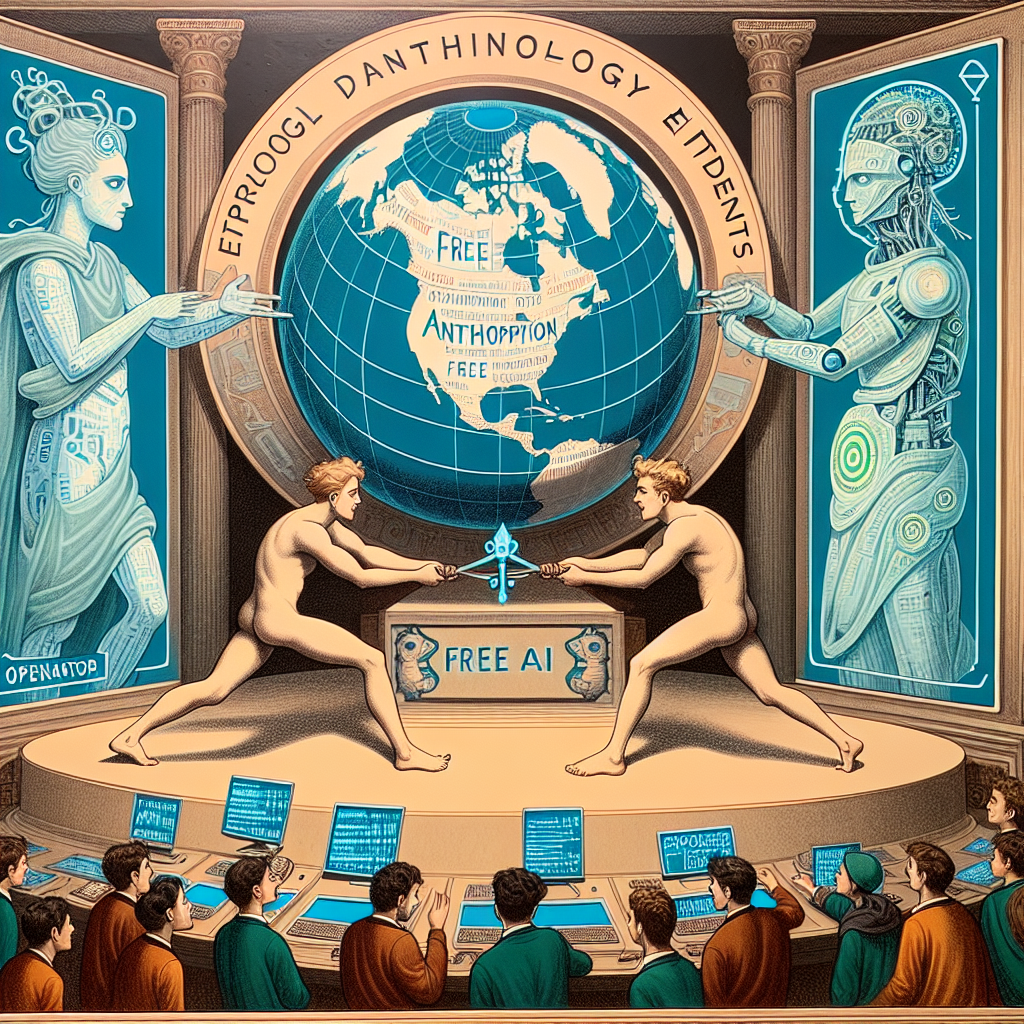OpenAI and Anthropic Compete for Students
When Google gave birth to modern AI with the Transformer paper in 2017, few could have predicted that less than a decade later, tech giants would be fighting to become the go-to AI provider for college students. Now, that’s exactly what’s happening as OpenAI and Anthropic compete for students at universities across the country—offering partnership programs, tailored tools, and exclusive access aimed directly at the classroom.
Big Tech Goes to School
In a move that underscores the growing intersection of artificial intelligence and education, both OpenAI and Anthropic are rolling out strategic initiatives built specifically for higher learning. These include pilot programs, generative AI workshops, and AI-powered educational tools that are reshaping how students and educators interact with information.
OpenAI, the force behind ChatGPT, has launched partnerships with Arizona State University and other colleges, integrating their large language model (LLM) tools into teaching and learning workflows. Meanwhile, Anthropic—creator of the Claude AI assistant—is seeking its own foothold by collaborating with institutions like the University of Pennsylvania and Stanford.
The Race for the Student Market
What makes universities such attractive battlegrounds? For companies like OpenAI and Anthropic, capturing college students is a long game. Students represent future professionals and early adopters of new technologies. Hooking them early means higher brand loyalty and scalable uptake as those students enter the workforce.
According to reports, both companies are also gathering crucial feedback from these academic environments to refine their AI tools. College campuses act as real-world testing grounds where ethical questions, misuse concerns, and innovative applications can be vetted at scale.
Unique Offerings from OpenAI and Anthropic
- OpenAI: Offers universities API access and chatbot integrations with learning management systems. Its partnership with ASU allows students to build custom GPTs for class assignments and lab work.
- Anthropic: Focuses on principles-based AI and brings a safety-first approach, which appeals to institutions concerned with misinformation and bias. Their Claude chatbot is designed to maintain fact-based, steerable conversations—important for academic integrity.
Potential Pitfalls and Ethical Considerations
While the tools are impressive, the rapid integration of generative AI into education raises red flags for many educators. Plagiarism, over-reliance on AI for thinking, erosion of critical reasoning—these are just a few of the issues being closely watched. Faculty members are calling for clearer guidelines and ethical standards on how AI should be used.
Not to mention, these companies are gathering large amounts of data in these environments. How that data is stored, handled, and used for future training remains a continuing concern.
A New Era for Learning
Whether it’s writing essays, solving equations, or providing instant feedback on presentations, AI is no longer a futuristic add-on—it’s becoming a core part of the collegiate learning toolkit. As OpenAI and Anthropic compete for students, the stakes are not just about market share but also about shaping the intellectual habits of a generation.
It’s no exaggeration to say that the classroom is becoming one of the defining arenas in the AI revolution—offering both opportunity and demand for ethical guardrails. As these tech pioneers continue to refine their tools, educators and students alike will need to stay vigilant to maximize value and minimize harm.
Learn more about this competitive race between AI giants in The Verge’s full report.

